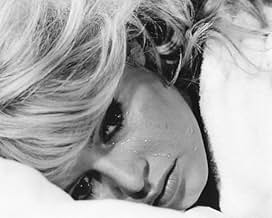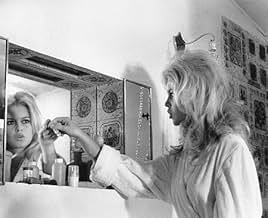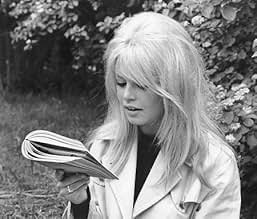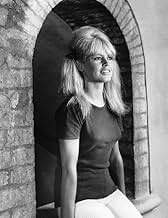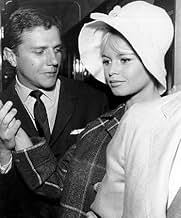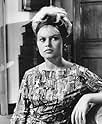IMDb-BEWERTUNG
5,6/10
1337
IHRE BEWERTUNG
Als Jill ein Filmstar wird, muss sie bald feststellen, dass ihr Privatleben von hartnäckigen Fans zerstört wird, die sie nicht in Ruhe lassen wollen. Der Ex-Geliebte ihrer Mutter, Fabio, ver... Alles lesenAls Jill ein Filmstar wird, muss sie bald feststellen, dass ihr Privatleben von hartnäckigen Fans zerstört wird, die sie nicht in Ruhe lassen wollen. Der Ex-Geliebte ihrer Mutter, Fabio, versucht, sie zu beschützen.Als Jill ein Filmstar wird, muss sie bald feststellen, dass ihr Privatleben von hartnäckigen Fans zerstört wird, die sie nicht in Ruhe lassen wollen. Der Ex-Geliebte ihrer Mutter, Fabio, versucht, sie zu beschützen.
- Regie
- Drehbuch
- Hauptbesetzung
Paul Sorèze
- Maxime
- (as Paul Soreze)
Eléonore Hirt
- Cécile
- (as Eleonore Hirt)
Jeanne Allard
- La femme de ménage
- (Nicht genannt)
Paul Apoteker
- Le caméraman
- (Nicht genannt)
Jean-Claude Brialy
- Le narrateur
- (Synchronisation)
- (Nicht genannt)
Claude Day
- L'éditeur
- (Nicht genannt)
Christian de Tillière
- Albert
- (Nicht genannt)
Empfohlene Bewertungen
Reviewers have suggested that this is not among the best of Malle's output and that the two principals lack the fire of real heterosexual passion.
The second objection is perfectly right, because Jill seems incapable of a grown-up relationship with a man, just as she seems incapable of pursuing any worthwhile career beyond that of international sex-symbol. Being highly desirable and readily available may be huge fun in your teens and early twenties but does not lead to a fulfilling existence. Her trajectory is tragic, beauty that offers not life but a hollow illusion of life.
While Fabio cannot resist what he finds in his bed (few straight men could), his feelings for Jill seem more pity than lust. He wants to protect her from endless exploitation by others and from her own immaturity. But, having gained an international reputation for the magazine he edits and the play he is producing, he is not going to sacrifice his hard-won status for a bimbo. He is creative, adding to the world's culture, while she is merely decorative.
A relationship between two characters like this will be short of fire, and it would be Hollywoodian falsity to pretend that they are merely consumed with passion for each other.
As for the place of this piece in Malle's very varied body of work, his non-documentary dramas differ widely from each other with few overt links. Here one has to consider his own evolution: an artist's fourth picture made at age 30 does not compare with a mature and reflective masterpiece like "Au revoir les enfants" made at age 55. Films appreciated in Europe can be lost in America, particularly if mutilated by tone-deaf dubbing and puritanical cutting. Also, I would suggest, we might separate films set in the past or an imaginary future from films set in and therefore commenting on the present.
To show the real superstar Brigitte Bardot as a fictional empty superstar, virtually playing herself (compared with her more nuanced rôle for Godard a year later in "Le Mépris"), is satirical, poignant, and even, dare I say it, darkly comic. If you don't get the joke, though many would have in 1962, you may not rate the film highly.
The second objection is perfectly right, because Jill seems incapable of a grown-up relationship with a man, just as she seems incapable of pursuing any worthwhile career beyond that of international sex-symbol. Being highly desirable and readily available may be huge fun in your teens and early twenties but does not lead to a fulfilling existence. Her trajectory is tragic, beauty that offers not life but a hollow illusion of life.
While Fabio cannot resist what he finds in his bed (few straight men could), his feelings for Jill seem more pity than lust. He wants to protect her from endless exploitation by others and from her own immaturity. But, having gained an international reputation for the magazine he edits and the play he is producing, he is not going to sacrifice his hard-won status for a bimbo. He is creative, adding to the world's culture, while she is merely decorative.
A relationship between two characters like this will be short of fire, and it would be Hollywoodian falsity to pretend that they are merely consumed with passion for each other.
As for the place of this piece in Malle's very varied body of work, his non-documentary dramas differ widely from each other with few overt links. Here one has to consider his own evolution: an artist's fourth picture made at age 30 does not compare with a mature and reflective masterpiece like "Au revoir les enfants" made at age 55. Films appreciated in Europe can be lost in America, particularly if mutilated by tone-deaf dubbing and puritanical cutting. Also, I would suggest, we might separate films set in the past or an imaginary future from films set in and therefore commenting on the present.
To show the real superstar Brigitte Bardot as a fictional empty superstar, virtually playing herself (compared with her more nuanced rôle for Godard a year later in "Le Mépris"), is satirical, poignant, and even, dare I say it, darkly comic. If you don't get the joke, though many would have in 1962, you may not rate the film highly.
One would have thought that Mastrioanni and Bardot would make 'beautiful music together'. However, this is mostly a self-indulgent treatment that could be part of the problem. Bardot's narcissistic behavior was either excellent acting or her real-life behavior.
I loved this movie for the beautiful scenes of Geneva and Spoleto, Italy. I've never seen how they do these wonderful operatic festivals and I really liked it. Georgeous technicolor. However, I could not find this movie reviewed in any of my review books: perhaps it's known by another name.
It is never clear what illness Bardot has in this movie....could have been a nervous breakdown, could have been flu, who knows? If you like looking at beautiful people, and georgous scenery, rent it. Otherwise, don't waste your time.
I loved this movie for the beautiful scenes of Geneva and Spoleto, Italy. I've never seen how they do these wonderful operatic festivals and I really liked it. Georgeous technicolor. However, I could not find this movie reviewed in any of my review books: perhaps it's known by another name.
It is never clear what illness Bardot has in this movie....could have been a nervous breakdown, could have been flu, who knows? If you like looking at beautiful people, and georgous scenery, rent it. Otherwise, don't waste your time.
Malle was an accomplished director of varied taste -- witness Pretty Baby (1977), a study in adolescent prostitution, and Au revoir les enfants (1986), a devastating account of youth in a private school in collaborationist France (with autobiographical hints.) But in Vie privee (1962) -- and please, it is Vie privee, not La vie privee (there is a difference) he achieved a dazzling, virtuosic, and at times subtle, at times hypnotic study of a movie starlet's sudden rise and precipitous fall from the limelight; her intense ambition, hiding a neurotic self-love, seems to evaporate as her life enters a new phase, becoming involved with a friend's former lover whom she had looked to for help. Bardot is captivating: she fills the screen, by turns stunning, radiant, and brooding, playing the role as though it were her life's story; add a suave and elegant Marcello Mastroianni as the glitterati who hides the fallen starlet from public view, and you have an electric mix. Watch the film in French with subtitles, please: only the original French conveys the cynical boredom of Jill (Bardot's character) and the paparazzi who swarm around her. And watch it also for Henri Decae's camera -- how it jumps from face to floor, cropping a doorway so that Bardot fills it, for example! -- and for Bernard Evein's glorious saturated colors. And the account of the Verdi Requiem at the Spoleto Festival makes a nice counterpoint to Jill's mundane existence with Fabio (Mastroianni). Oh -- the 'difference' mentioned in the French title is that without the 'La' ('the') vie privee carries a suggestion of 'a deprived life' as well as 'a private life.' Compare to the American version, called 'A Very Private Affair'!
After having seen Louis Malle "Crackers", we thought the director might have bad luck with that film, but viewing "Vie Privee", his 1962 effort that deals with fame and being in the limelight, one wonders what did attract him to get involved in this project. Granted, the dubbed English version that was presented recently on cable hasn't kept well and the translated dialog is horrible. The director collaborated with Jean Paul Rappeneau and Jean Ferry in the screen play, which might have made more sense in the original version that what it does in the one we saw.
The story about the beautiful Jill, who at first is seen as wanting to be a ballerina, changes without any explanation as this young woman is "discovered" for the movies, something that even for France, never occurs in such a quick fashion, and we can't buy it. Then at the pinnacle of her fame, Jill is thrown into despair as she can't cope with the invading horde of paparazzi that hound her and don't let her live a normal life. Jill runs back home to Geneva to be with her mother and then she turns into Fabio, who was seeing her best friend.
The film is tedious, at best. Marcello Mastroianni and Brigitte Bardot appear to be going through the motions, but actually there is no chemistry between them. These two attractive stars seem to have been cast just for their allure to fans, but actually they never connect.
The story about the beautiful Jill, who at first is seen as wanting to be a ballerina, changes without any explanation as this young woman is "discovered" for the movies, something that even for France, never occurs in such a quick fashion, and we can't buy it. Then at the pinnacle of her fame, Jill is thrown into despair as she can't cope with the invading horde of paparazzi that hound her and don't let her live a normal life. Jill runs back home to Geneva to be with her mother and then she turns into Fabio, who was seeing her best friend.
The film is tedious, at best. Marcello Mastroianni and Brigitte Bardot appear to be going through the motions, but actually there is no chemistry between them. These two attractive stars seem to have been cast just for their allure to fans, but actually they never connect.
For the record, I saw the dubbed version. But for the first hour, there is so little dialogue, I don't think it could matter very much. This early Malle film spends so much time on Bardot's character's angst and yearning for her own time and space that you might be tempted to turn it off. Don't, but if you have it on tape, you may wish to fast forward. The second third of the movie is a never-ending cliche. As a reward, the ending is rich, vibrant, and celebratory.
Wusstest du schon
- WissenswertesFrench actor Michel Auclair dubs Marcello Mastroianni's voice in French.
- VerbindungenFeatured in Censura: Alguns Cortes (1999)
- SoundtracksSidonie
Music by Jean-Max Rivière and Giannis Spanos
Lyrics by Charles Cros
Performed by Brigitte Bardot
Top-Auswahl
Melde dich zum Bewerten an und greife auf die Watchlist für personalisierte Empfehlungen zu.
- How long is A Very Private Affair?Powered by Alexa
Details
- Laufzeit1 Stunde 44 Minuten
- Seitenverhältnis
- 1.85 : 1
Zu dieser Seite beitragen
Bearbeitung vorschlagen oder fehlenden Inhalt hinzufügen



